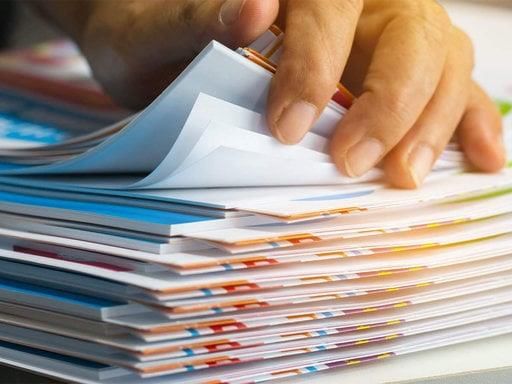Laxmikanth: Summary of Prime Minister | Additional Study Material for UPSC PDF Download
The President is the nominal executive authority (de jure executive) and Prime Minister is the real executive authority (de facto executive). In other words, the president is the head of the State while the Prime Minister is the head of the government.
APPOINTMENT OF THE PRIME MINISTER
Article 75 says only that the Prime Minister shall be appointed by the president. However, this does not imply that the president is free to appoint anyone as the Prime Minister. In accordance with the conventions of the parliamentary system of government, the President has to appoint the leader of the majority party in the Lok Sabha as the Prime Minister. But, when no party has a clear majority in the Lok Sabha, then the President may exercise his discretion in the selection and appointment of the Prime Minister.
- This discretion was exercised by the President, for the first time in 1979, when Neelam Sanjiva Reddy (the then President) appointed Charan Singh (the coalition leader) as the Prime Minister after the fall of the Janata Party government headed by Morarji Desai.
- This is what happened when Indira Gandhi was assassinated in 1984. The then President Zail Singh appointed Rajiv Gandhi as the Prime Minister by ignoring the precedent of appointing a caretaker Prime Minister.
POWERS AND FUNCTIONS OF THE PRIME MINISTER
In Relation to Council of Ministers:
The Prime Minister enjoys the following powers as head of the Union council of ministers:
1. He recommends persons who can be appointed as ministers by the president.
2. He allocates and reshuffles various portfolios among the ministers.
3. He can ask a minister to resign or advise the President to dismiss him in case of difference of opinion
4. He presides over the meeting of the council of ministers and influences its decisions.
5. He guides, directs, controls, and coordinates the activities of all the ministers.
In Relation to the President
The Prime Minister enjoys the following powers in relation to the President:
1. He is the principal channel of communication between the President and the council of ministers. It is the duty of the prime minister:
(a) To communicate to the President all decisions of the council of ministers relating to the administration of the affairs of the Union and proposals for legislation;
(b) To furnish such information relating to the administration of the affairs of the Union and proposals for legislation as the President may call for; and
(c) If the President so requires, to submit for the consideration of the council of ministers any matter on which a decision has been taken by a minister but which has not been considered by the council.
2. He advises the president with regard to the appointment of important officials like attorney general of India, Comptroller and Auditor General of India, chairman and members of the UPSC, election commissioners, chairman and members of the finance commission and so on.
In Relation to Parliament
The Prime Minister is the leader of the Lower House. In this capacity, he enjoys the following powers:
1. He advises the President with regard to summoning and proroguing of the sessions of the Parliament.
2. He can recommend dissolution of the Lok Sabha to President at any time.
3. He announces government policies on the floor of the House.
Other Powers & Functions
In addition to the above-mentioned three major roles, the Prime Minister has various other roles. These are:
1. He is the chairman of the Planning Commission (now NITI Aayog), National Development Council, National Integration Council, Inter-State Council and National Water Resources Council.
2. He is the crisis manager-in-chief at the political level during emergencies.
3. He is the leader of the party in power.
4. He is the political head of the services.
RELATIONSHIP WITH THE PRESIDENT
1. Article 74 There shall be a council of ministers with the Prime Minister at the head to aid and advise the President who shall, in the exercise of his functions, act in accordance with such advice.
2. Article 75 (a) The Prime Minister shall be appointed by the President and the other ministers shall be appointed by the president on the advice of the Prime Minister;
3. Article 78 It shall be the duty of the Prime Minister:
CHIEF MINISTERS WHO BECAME PRIME MINISTERS
Six people Morarji Desai, Charan Singh, V.P. Singh, P.V, Narasimha Rao, H.D. Deve Gowda and Narendra Modi became Prime Ministers after being Chief Ministers of their respective States.
|
20 videos|561 docs|160 tests
|
FAQs on Laxmikanth: Summary of Prime Minister - Additional Study Material for UPSC
| 1. Who is Laxmikanth? |  |
| 2. What is the significance of Laxmikanth's book "Indian Polity" for UPSC exam preparation? |  |
| 3. How can Laxmikanth's book "Indian Polity" help in preparing for the Prime Minister UPSC exam? |  |
| 4. Can Laxmikanth's book "Indian Polity" be used as the sole resource for studying Indian Polity for the UPSC exam? |  |
| 5. Are there any online resources available to supplement Laxmikanth's book "Indian Polity" for UPSC exam preparation? |  |





















